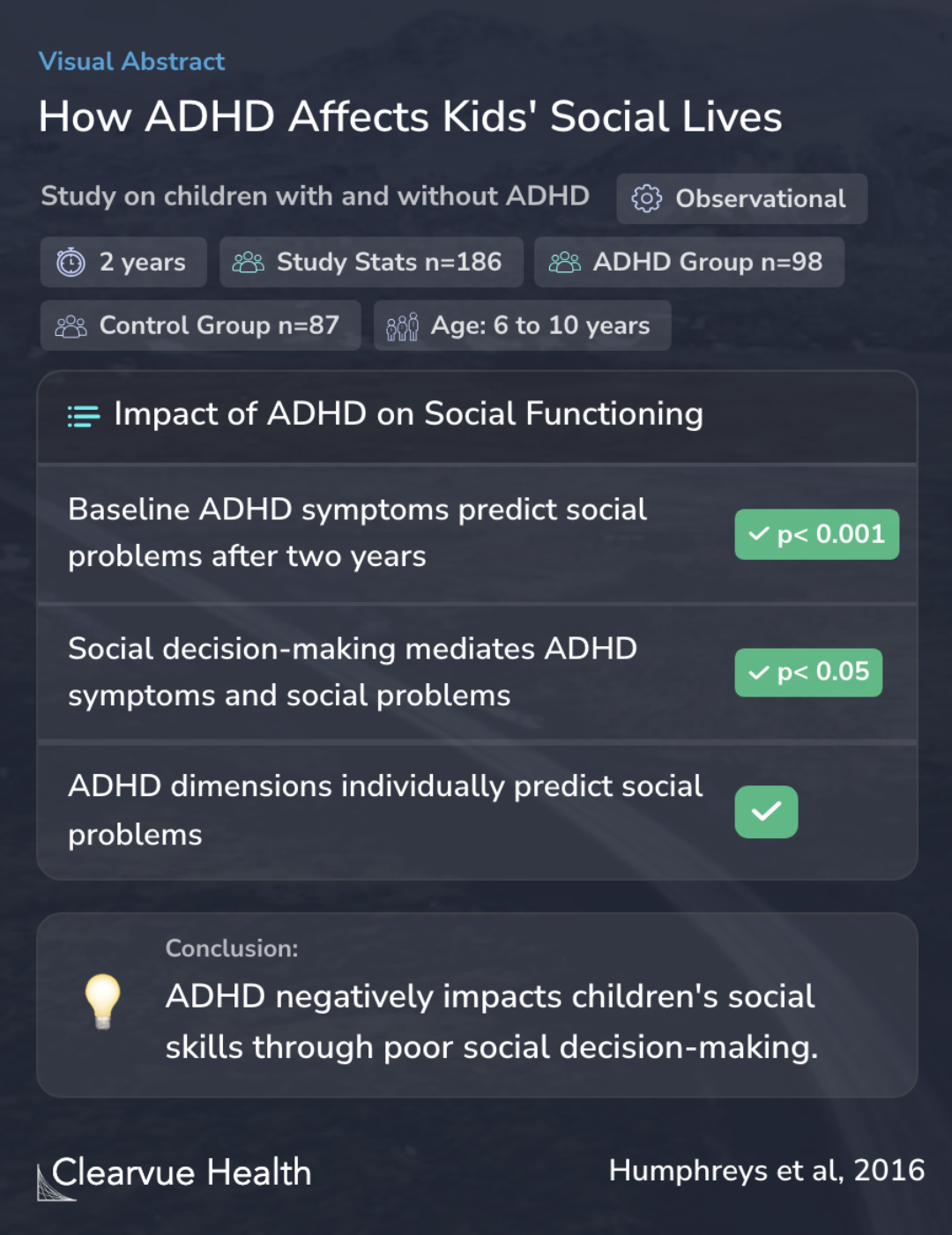Impaired Social Decision-Making Mediates the Association Between ADHD and Social Problems
How ADHD Affects Kids' Social Lives Through Impairing Their Decision Making
Humphreys KL, Galán CA, Tottenham N, Lee SS

Objectives
Attention-deficit/hyperactivity disorder, or ADHD for short, is a condition that can make it hard for kids to get along with others. They might struggle to make friends or fit in, and this can be really tough for them. In a recent study, researchers wanted to understand why kids with ADHD often find it hard to connect with their peers. They looked at 186 kids, some with ADHD and some without, to see how they managed socially over two years.
Attention-deficit/hyperactivity disorder (ADHD) reliably predicts social dysfunction, ranging from poor social competence and elevated peer rejection to inadequate social skills. Yet, the factors mediating predictions of social problems from childhood ADHD are not well understood. In the...
Methods
The study took a close look at these kids by using a special test to see how they handle social situations. They wanted to see if the way these kids act in social settings can tell us why they might have trouble getting along with others. Parents and teachers also shared their observations about each child's behavior. The researchers were especially interested in seeing how the kids' ADHD symptoms might be linked to any social challenges they face.
We implemented a well-validated measure of social problems as well as a novel social decision-making task assessing dynamic response to changing affective cues at the two-year follow-up. According to separate parent and teacher report, baseline ADHD symptoms positively predicted social p...
Results
The kids' behavior in social situations did seem to play a role in the social challenges they faced. This was true for all the kids with ADHD, no matter what kind of ADHD symptoms they had. The study didn't give specific numbers, but it was clear that there's a connection between ADHD and having a hard time socially.
The study did not explicitly provide numerical results such as ORRs and IRRs in the abstract but highlighted that the individual differences in a social decision-making task mediated the association between baseline ADHD symptoms and social problems at the two-year follow-up. It also men...
Conclusions
This study suggests that kids with ADHD might not be picking up on social cues, like facial expressions or tone of voice, in the same way other kids do. And this could be why they find social situations more challenging. The researchers think that if we can help these kids get better at understanding these cues, it might make it easier for them to make friends and get along with others. This is just a starting point, though, and more research is needed to be sure.
These findings suggest that the deficient use of affective cues to effectively guide behavior may partially underlie poor social functioning among children with ADHD. If replicated, these preliminary findings suggest that social skills interventions that target interpretation of affectiv...
Key Takeaways
Context
While this study offers new insights, it's important to remember that not all research agrees on the best way to help kids with ADHD improve their social skills. For example, a study from 2019 found that teaching social skills to kids with ADHD didn't really help them act differently in social situations.
Another study in 2018 suggested that kids with ADHD know what to do socially but struggle actually to do it because of their ADHD symptoms. These findings highlight the complexity of ADHD and the need for tailored approaches to help these kids navigate social challenges: